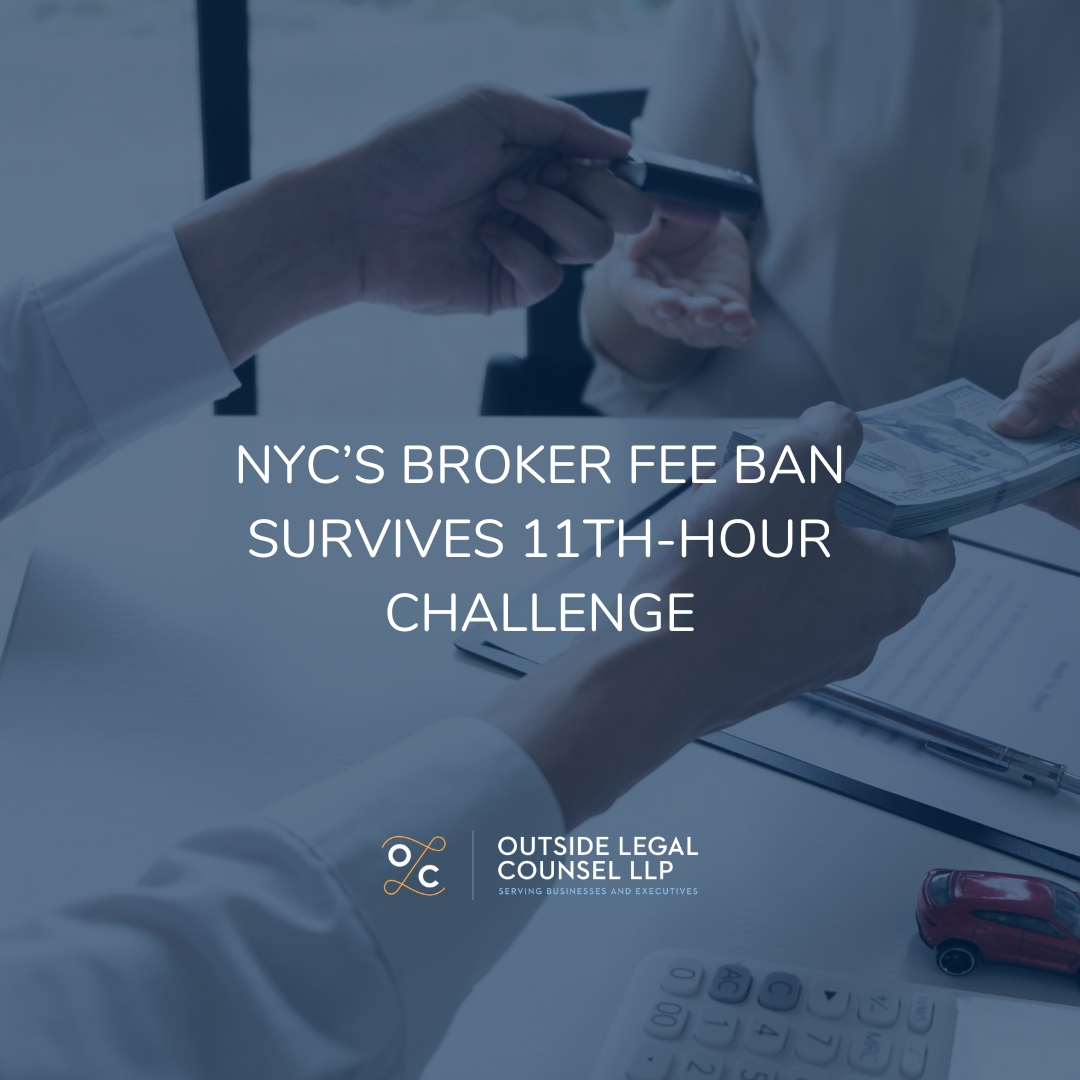

The dynamics of renting in New York City are poised for a significant shift. On June 11, 2025, the Fairness in Apartment Rental Expenses (FARE) Act officially took effect, despite an aggressive last-minute legal effort by the real estate industry to halt its implementation. The law prohibits brokers representing landlords from charging tenants a broker fee — a longstanding and costly practice that has made New York City’s rental market uniquely burdensome for renters.
The Real Estate Board of New York (REBNY), representing over 10,000 real estate professionals, filed a motion in federal court seeking to pause the law’s rollout, arguing that the FARE Act violates both federal and state law. Their lawsuit challenges the legislation on constitutional grounds, including alleged infringements on free speech and contract rights. However, no court order was issued before the June 11 effective date, signaling judicial reluctance to interfere at this stage — a fact legal observers say bodes poorly for REBNY’s attempt to derail the reform.
Passed by the City Council with a decisive 42–8 vote in November 2023, the FARE Act aims to alleviate rental costs by targeting upfront broker fees — traditionally around 15% of a unit’s annual rent. Under the new law, landlords can still hire brokers, but they must now shoulder the cost themselves if the broker is working exclusively on their behalf. Brokers representing tenants may still charge fees to their clients.
In addition to banning these landlord-initiated tenant charges, the Act mandates that all tenant-related fees be fully disclosed in listings and lease agreements, adding a layer of transparency to a rental process that has long been criticized as opaque and financially punishing.
The real estate industry has warned of unintended consequences. REBNY and the New York State Association of Realtors argue the law could lead to fewer rental listings, higher rents, and widespread confusion about how brokerage services will be compensated moving forward. Critics also claim the law could create loopholes — such as landlords embedding broker fees into monthly rent — effectively neutralizing the intended benefit for tenants.
Andrew Lieb, a managing attorney at Lieb at Law, argues the law adds to a mounting regulatory burden on landlords and could deter property owners from participating in the residential market altogether. “New York City is really making it impossible for a residential landlord to operate,” he warned.
Still, these industry concerns did not sway lawmakers. Supporters of the FARE Act insist that it brings long-overdue fairness to an inequitable system. As the City Council noted in a statement, the law “ensures transparency for tenants to not unfairly be burdened with additional costs by placing the responsibility for a broker’s fees on the party that actually hired them.”
For renters, the reform is widely seen as a win. A report from StreetEasy estimates that eliminating broker fees in applicable listings will lower the average lease-signing cost by 41.8%. And despite concerns that landlords might raise rents to compensate, the same report found no significant rent inflation beyond broader market trends when broker fees were eliminated in prior scenarios.
Nevertheless, enforcement will be critical. The Department of Consumer and Worker Protection (DCWP) is tasked with overseeing compliance. Violators face fines of $1,000 for a first offense and $2,000 for each subsequent violation within two years. The agency has requested $500,000 in the upcoming fiscal year for public education and enforcement related to the FARE Act.
New Yorkers can file complaints through nyc.gov/consumers or by calling 311.
While the law’s legal fate remains pending, the initial failure of REBNY’s injunction bid means New York City tenants are — for now — no longer responsible for paying broker fees tied to landlord interests. Yet, the broader implications are still unfolding. Landlords may adjust pricing models, and brokers will likely restructure their service offerings. The law represents a seismic shift in the city’s rental landscape, and its full impact will depend on enforcement, compliance, and market adaptation.
At Outside Legal Counsel LLP, we specialize in guiding clients through evolving real estate regulations and tenant-landlord frameworks. Whether you are a property owner seeking to adapt your practices or a tenant navigating your rights under the new law, our team provides strategic, tailored legal counsel to ensure compliance and protect your interests. Contact us today to learn how we can help you succeed in this shifting legal environment.
This is not legal advice and is attorney advertising.
Disclaimer: Nothing on this website is or should be construed as legal advice. An attorney-client relationship does not exist with our firm unless a signed retainer agreement is executed, and we do not offer legal advice through this site or any of the content located on it. For legal advice for your particular circumstances, please contact us directly.